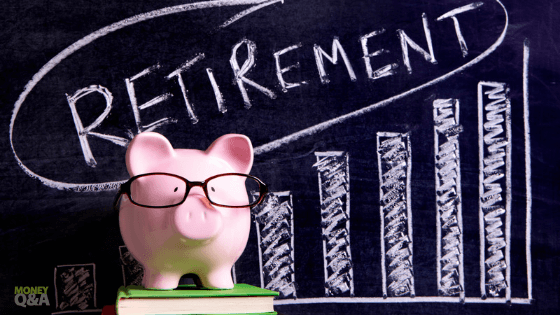
The country is locked down, the stock market is on a roller coaster ride, and for millions of Americans, the prospect of retiring may be lost forever. However, this doesn’t have to happen to you. Even in the face of uncertainty, here are five ways you can make sure you have enough money for retirement.
The Rules are Changing
For years would-be retirees were told that there was a magic number when it came to retirement planning. This was called the 70 percent replacement rule because retirees would need to save enough to replace up to 70 percent of their pre-retirement income.
However, today’s seniors are not only living longer, more active lives. They are also paying more for healthcare than ever before. Also, many of those who just retired end up spending more than this amount in the first years out of work. What this means is that they are burning through their nest egg at the worst possible time – at the start of their retirement.
Doing so means that they are depriving themselves of the ability to earn compounded interest on the fund for years to come. As such, the first thing you need to do is realize that the rules are changing, and this means ditching the 70 percent replacement rule for an approach that will help you figure out how much in savings you will need to live the kind of life you want to live in retirement.
Stop Spending NOW!
It is near certain that you are spending too much money now. Think about it; you are probably going to live 20 years or more beyond your retirement. However, do you have enough money to last that long?
Sure, there is Social Security, and if you are lucky, you might have a pension. But even these funds might have limits. This is because most actuaries did not prepare for people to live as long in retirement as they are these days.
As such, you must assume they your Social Security and pensions might not be as secure as you once thought. If this is the case, then you will need another source of funds to help you during your retirement.
You could try to win the lottery, but you’ve got a better chance of being hit by lightning. As such, you will need to earn more and spend less. While making more is tough during a time of economic uncertainty, you can do something about your spending but cutting back – now.
Freeze Your Mortgage and Keep Your House
Does this sound like it is too good to be true? It’s not. In fact, for more than 50-years, older Americans have been able to get what is called a reverse mortgage. While this is a bank loan, it is one where you don’t need to repay during the life of the loan. The benefits of a reverse mortgage are that you can not only freeze your mortgage payment, which means you will have more money for retirement each month, but you can also tap into the equity you’ve built up in your home.
Your home is probably the most valuable asset you own. But if you have a mortgage, and most people do, the only way you can tap into the equity is by selling your home or taking out a line of credit. Both options have downsides, and as such, more and more Americans are considering a reverse mortgage to help finance their retirement.
According to ARLO calculator, “the number of funds available from a reverse mortgage are based on several factors which include the age of the youngest borrower or spouse, current interest rates, and your home’s value.”
While a reverse mortgage might not be right for everyone, it does make sense to at least check out how it would impact your retirement savings plans.
Know How Much Retirement Will Cost
You might not be able to forecast what your expenses will be 20 years from now, but you should try to map out your expenses going forward. This includes not only living expenses like housing and food but also the cost of healthcare and any discretionary expenses.
Doing this will probably scare you, and this is fine. The point is to put in context how much money for retirement you will need to enjoy retired life. Granted, you don’t need all the money for retirement as compounding interest on investments, and other assets will help to get you there. But you want to make sure that you have a big enough nest egg, in the beginning, to help cover your burn rate.
Don’t Forget to Factor in Taxes
Death and taxes, as the saying goes, are the only things in life that are inevitable. This is especially true when you start tapping into your 401K fund as the funds will be taxable as ordinary income when you finally start making withdrawals.
Also, your Social Security benefits might also be taxable if you are collecting benefits above a certain threshold. As such, you will need to factor in the impact of taxes on your retirement plans.
Given the complexity of some of these rules, you should consider sitting down with an advisor to get a better understanding of the tax liabilities of your retirement plans. This is one reason why many retirees move to no-tax states as this will help them to make their money for retirement go even further.
